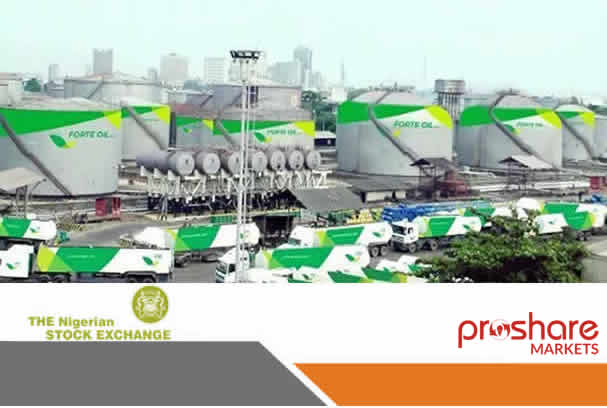Being an Analyst Note issued by Proshare Research on February 7th 2023
Early Estimates of Nigeria’s Oil Production Shows Stagnation
Whether Nigeria will meet its 2023 budget assumption on oil production and OPEC quota depends on continuous clamp down on oil theft and increased investment. Analysts had argued that the country’s oil output is on track, having increased in Oct-Dec 2022, to meet its 1.69mb/d projection in H1 2023 if ongoing efforts to curb oil theft are sustained. Howbeit, early estimates of the country’s oil production in Jan 2023 by Reuters Survey and Refinitiv Eikon, a company that tracks export flows, showed that output stagnated at the 1.2mb/d it did in Dec 2022. Punch report valued the underproduction at about N500bn below what the country would have made under the OPEC quota. Analysts expect the official report of oil production from the Nigerian Upstream Petroleum Regulatory Commissions (NUPRC) to validate Nigeria’s laggard in oil production as the initial campaign against oil theft and vandalism seems to be petering out. Much more, analysts say investors are still uncertain about returns on investment in Nigeria due partly to the lingering oil theft, which increases production cost and drain values, and partly to the fiscal and regulatory loopholes in the industry.
Nigerians Groan as Naira Redesign Deepens Social Discontent
The Central Bank of Nigeria’s Naira Redesigning policy was targeted at tackling counterfeits, illegal vote buying, mopping heavy money in circulation (over 2.73trn outside the banking net), and kidnapping. Analysts acknowledge that the objectives have a good course considering that the country has not redesigned the notes in a long term and also bringing money in circulation into the banking nets makes monetary policy more effective. However, the time frame of the transition is the bone of contention with the large informal sector of the country. In other countries, currency swap takes at least 6 months and above, which gives citizens enough time to exchange except for India’s demonetisation in 2016.
The Indian demonetisation plan was a strike against corruption, counterfeiting, and tax evaders and ease the transition into a cashless policy similar to Nigeria’s. However, the country could only achieve the transition to a cashless policy, the RBI incurred a huge cost in printing lower-denomination notes and did not receive any windfall as big tax evaders held their money in real estate, gold, and swiss bank accounts. Analysts believe the current fuel scarcity and the closely forthcoming election have complicated the whole process and have triggered social tension in the country. A large number of poor Nigerians (133m according to NBS 2022 data) is also a disadvantage. This situation might worsen as citizens are now attacking commercial banks and for safety reasons, some banks might close down which will further impede the circulation process (see illustration 1 below).
Illustration 1:
Rising Liquidity May Favour February FGN Savings Bond
The FGN Savings Bond for February has a slight adjustment in the interest rate at both the 2-year and 3-year tenors. The 2-year tenor increased to 10.043% per annum from 9.60% at the previous issuance while the 3-year tenor drop slightly to 11.043% from 13.255%. The offer began on February 6, 2023, and is to close on February 10, 2023, with the settlement date on February 15, 2023. The coupon payment dates are May 15, August 15, November 15, and February 15. Investors can subscribe with a minimum of N5000 to a maximum subscription of N50m. Analysts noticed robust liquidity has positively impacted the fixed-income market, leading to huge buying interest in most recent times. Subject to that, analysts expect the savings bond auction to receive a high subscription.
Stakeholders Monitor Regulations that Promote Discipline in Upstream Oil Market
The primary responsibility of the upstream regulator – the Nigerian Upstream Petroleum Regulatory Commission (NUPRC) – is the technical, operational, and commercial regulations of the upstream petroleum resources. To provide a broad-based regulatory framework, the commission is expected to develop specific regulations on different aspects of the upstream oil segment in line with the provisions of the Petroleum Industry Act 2021. The NUPRC, on Monday, unveiled five draft regulations in the third phase of its consultation with stakeholders on regulations development. These include Upstream Petroleum Measurement Regulations; Advance Cargo Declaration Regulations; Significant Discovery Regulations; Gas Flaring, Venting, and Methane Emissions Regulations; and Domestic Crude Oil Supply Obligation Regulations. The Commission disclosed that the first two are specifically drafted to tackle oil theft. While there are obvious reasons to be optimistic that the regulations will result in accurate measurement and reporting of loading and offloading of crude oil, analysts say the regulations will do little to capture the large-scale actions and inactions of non-state actors operating in the black market.
Nigeria-France Agricultural Grant Could Improve Output
Nigeria and France have signed a grant agreement of €1.2m to develop a strategy for agriculture and food markets in Nigeria. This grant is to finance a one-year technical program to assist the Federal Ministry of Agriculture and Rural Development to design a national agrifood market development strategy. This programme, to be implemented by French company Semmaris, should result in an inventory of the existing agricultural market, an in-depth analysis of current distribution channels and agrifood logistics, a legal and regulatory framework adapted to market development, and technical recommendations to rehabilitate or build three terminal markets.
Analysts are taking a holistic look at Nigeria’s agricultural system, as they consider issues related to security and the price of inputs in a country where many farmers are smallholder farmers and cannot afford some of these materials. If prices of inputs drop, analyst point to insecurity which has plagued many farmers, driving some of them from their lands or forcing them to pay these trouble peddlers just to have access to their farms, but the research if properly followed by the support of the Federal Project Management Unit (FPMU) of the Rural Access and Agricultural Marketing Project (RAAMP) under the Federal Ministry of Agriculture and Rural Development along could result in the reduction of certain problems like the education of farmers, the irrigation of farms and the logistics of farm produce (see chart 1 below).
Chart 1:
Ignite Investments and Commodities Proposes buyout of Ardova Shareholders
Ardova, a downstream oil and gas company, has informed the Nigerian Exchange (NGX) of its intention to delist as a public company. This decision is a result of its parent company, Ignite Investments, and Commodities, proposing a buyout of all remaining shares held by other shareholders at an offer price of N17.38 per share. Currently, Ignite Investments and Commodities holds a 74% stake in Ardova as the majority shareholder. Analysts note that Ardova currently trades at N17.65 per share in the last trade session and the investment company arrived at the buyout price of N17.38, a premium of 22.44% and 24.38% over the 30-day and 60-day weighted average share price of N14.19 and N13.97, respectively. Analysts say delisting Ardova Plc from the Exchange could save cost for the company as it would no longer be subject to the regulations and reporting requirements of publicly traded company. Ignite Investments and Commodities, on the other hand, is a subsidiary of Ignite Group, a multinational conglomerate with interests in various industries including energy and commodities. The proposed buyout aligned with Ignite's growth strategy in the energy sector, with a view to increasing its market share in Nigeria (see chart 2 below).
Chart 2:
Ghana debt Swap Deal Causes Commotion as Pensioners Protest
Ghana’s fiscal authority has been met with heavy resistance from bondholders after launching its debt swap deal in December 2022. As the deadline looms, the country is still struggling to convince pensioners to buy into its debt exchange deal. The pensioners showed their grievance by protesting in front of the ministry of finance as they essentially fought for the ability to afford their basic needs, e.g., medical care. The minister of finance, Ken Ofori-Atta, addressed the group of over-60s informing them that the five-year maturity on offer was favourable given a third of them held instruments with maturities of more than 12 years, despite an interest rate cut to 15% from an average of 18.5%. Analysts are concerned as to the outlook for pension pay-outs in Ghana and the government’s plan to satisfy pensioners in the interim. Given that the cost of living is increasing and that vulnerable segments of the public are gradually losing the ability to afford necessities due to the highly inflationary climate.
Binance to Suspend USD Deposits and Withdrawals on its Platform
The world's largest cryptocurrency exchange by trading volume, Binance, is suspending its U.S. dollar bank transfers starting on Wednesday. The service disruption is expected to last for a week and will only affect users of US dollar bank accounts, who allegedly represent only 0.01% of monthly active users' leverage. This new development will not affect users, who are already using their national currency on the Peer to Peer (P2P) market trading and other exchange transactions. This move was triggered by Signature Bank announcing that it will no longer be handling SWIFT transactions for Binance’s customers below US$100,000. Analysts hope that this temporal suspension would not lead to something else as the crypto community is still on edge after the recent collapse of FTX and other crypto platforms as any headline associated with suspending withdrawals is alarming to customers.
 Lagos, NG • GMT +1
Lagos, NG • GMT +1











 282 views
282 views





















 Sponsored Ad
Sponsored Ad
 Advertise with Us
Advertise with Us









